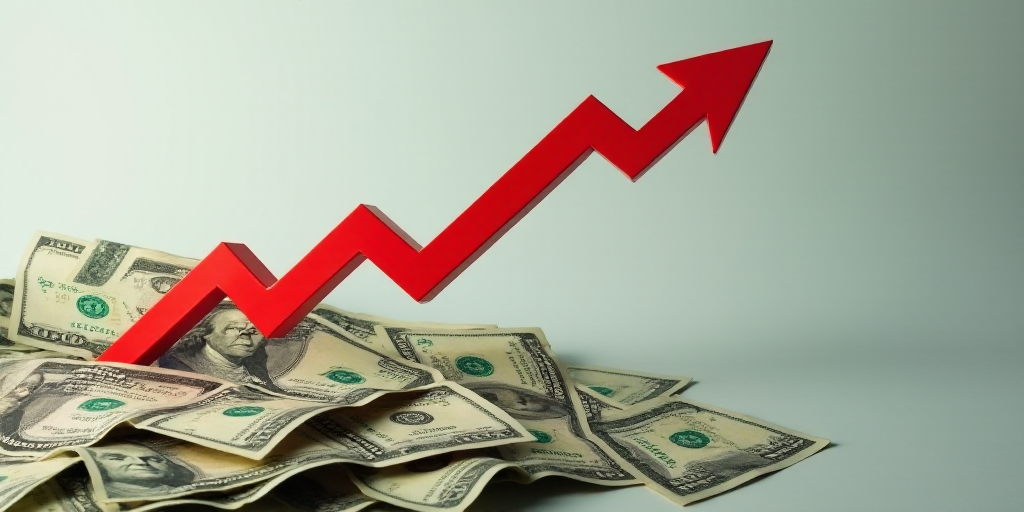Introduction
Since Donald Trump’s “Liberation Day” on April 2, when he announced radical tariffs on both allies and adversaries, the general outlook for the U.S. economy in the short and medium term has been pessimistic. The tariff hikes are expected to trigger a recession in the U.S. and globally, marking the end of American exceptionalism, making fiscal and current account deficits unsustainable, and hastening the demise of the U.S. dollar as the world’s primary reserve currency.
Trump’s Policies: A Source of Concern
Indeed, some of Trump’s announced policies warrant such pessimism. The tariffs, protectionism, and trade wars are likely to be stagflationary—causing higher inflation and slower growth. Similarly, drastic immigration restrictions, mass deportations of undocumented workers, large fiscal deficits without funding, and attempts to interfere with the Federal Reserve’s independence could negatively impact the U.S. economy.
Why the U.S. Economy Will Still Prosper
However, I have maintained since last winter that the U.S. economy will remain strong, not because of Trump’s policies but in spite of them. Firstly, I anticipated that market discipline, the prudence of Trump’s advisors, and the independence of the Federal Reserve would prevail. Trump has consistently backed down and sought trade deals instead of pursuing his “Liberation Day” tariffs.
Moderation of Harmful Policies
Trump’s predetermined strategy might be “TALO” (Trump Always Attacks), but bond watchers and financial markets have pushed him to adopt the “TACO” (Trump Always Cowers) mode. As his most harmful economic policies are moderated, the U.S. economy will still face some challenges, but the likely scenario by year-end is a growth slowdown (i.e., growth below potential) rather than a full-blown recession.
Technological Innovation and American Exceptionalism
Secondly, the positive effects of technology will always outweigh the negative impacts of tariffs. The era of American economic exceptionalism is far from over. The U.S. leads the way in most revolutionary technological innovations shaping our future, making it likely that its potential annual growth will rise from 2% to 4% by the end of the decade, and much higher in the 2030s. Assuming new technologies boost potential growth by 200 basis points while negative trade policies and others reduce it by 50 basis points, the U.S. will remain exceptional.
Sustainable Public Debt
Thirdly, if the potential growth accelerates to 4% over time, U.S. public and external debt as a percentage of GDP will become sustainable, stabilizing and eventually declining. The Congressional Budget Office projects an increase in the debt-to-GDP ratio, primarily because it assumes U.S. potential growth will peak at 1.8%.
Global Demand for the U.S. Dollar
Fourthly, as long as American economic exceptionalism persists, the “exorbitant privilege” granted by the global primacy of the U.S. dollar is unlikely to erode. Despite tariff hikes, U.S. external deficits are expected to remain high as investment as a percentage of GDP rises due to a secular boom driven by technology, while the saving rate remains relatively stable. The resulting increase in the current account deficit will be financed by capital inflows (both portfolio and foreign direct investment).
Key Questions and Answers
- Q: Will Trump’s policies harm the U.S. economy? A: Many of Trump’s policies are potentially stagflationary, causing higher inflation and slower growth. However, the U.S. is at the forefront of significant technological innovations that will generate a substantial positive supply shock, driving growth and reducing inflation over time.
- Q: How will technological innovation impact the U.S. economy? A: Technological advancements will likely increase the U.S. potential annual growth from 2% to 4% by the end of the decade, making it exceptional despite harmful trade policies.
- Q: Will the U.S. dollar lose its global reserve status? A: The U.S. dollar’s global reserve status is unlikely to be significantly questioned, as technology-driven investment inflows will offset the impact of tariff hikes and maintain high external deficits.
Author: Nouriel Roubini, Senior Advisor at Hudson Bay Capital Management LP and Emeritus Professor at NYU Stern School of Business. He is the author of “Megathreats: Ten Dangerous Trends That Imperil Our Future, and How to Survive Them” (Little, Brown and Company, 2022).
Copyright: Project Syndicate, 1995 – 2025
Website: www.project-syndicate.org






